153 CD / Robert Schumann: Kreisleriana, Kinderszenen, Bunte Blätter
Description
"The ‘Haunted Spot’ is one of the most mysterious and worrying pieces of the Forest Scenes op. 82 and seems somewhat unusual as the opening of a Schumann CD. And yet this miniature takes us straight into the middle of Koroliov’s Schumann idea, which radically rejects all facile virtuosity and any superficial flow. Koroliov digs deep into the Kreisleriana and is obsessed with detail in his search for rough patches, resistance and the unexpected. The fact that he never loses sight of the greater picture is one of the secrets of this truly great pianist. The Scenes from Childhood sound wonderfully simple, just like the dreamy recollection of an aging poet. After this CD we would like to go back to Schumannn’s favourite poet Jean Paul." (Partituren)
7 reviews for 153 CD / Robert Schumann: Kreisleriana, Kinderszenen, Bunte Blätter
You must be logged in to post a review.

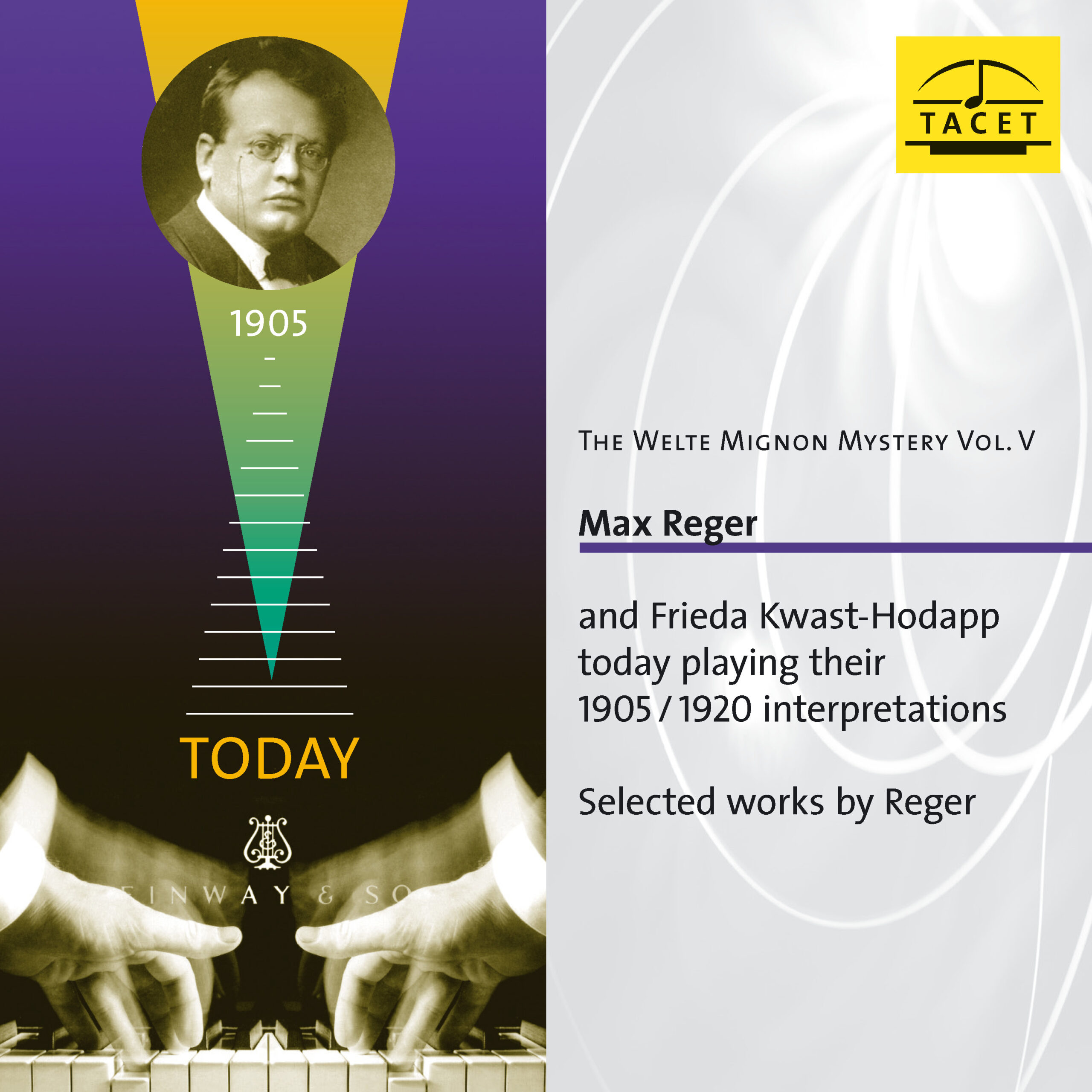

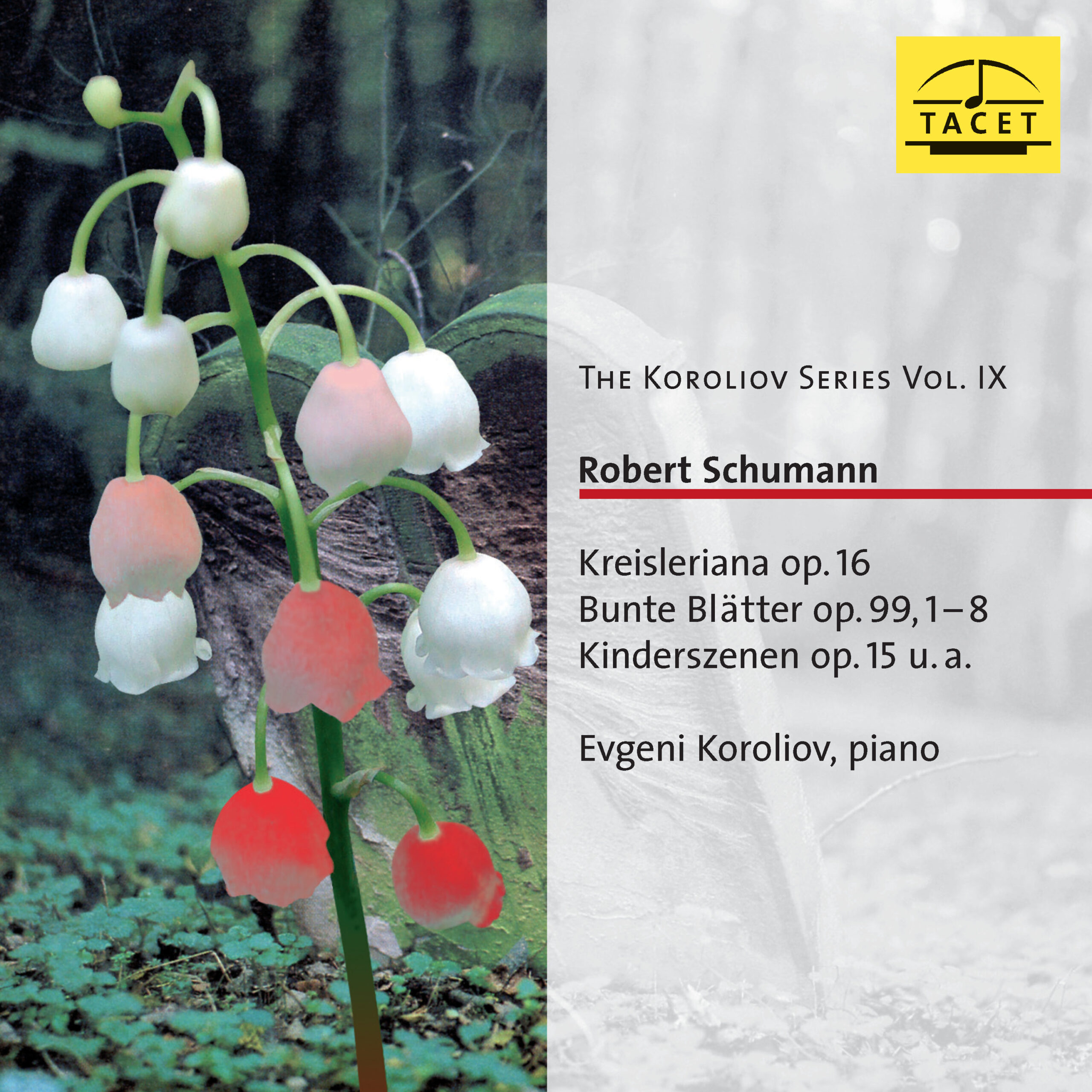
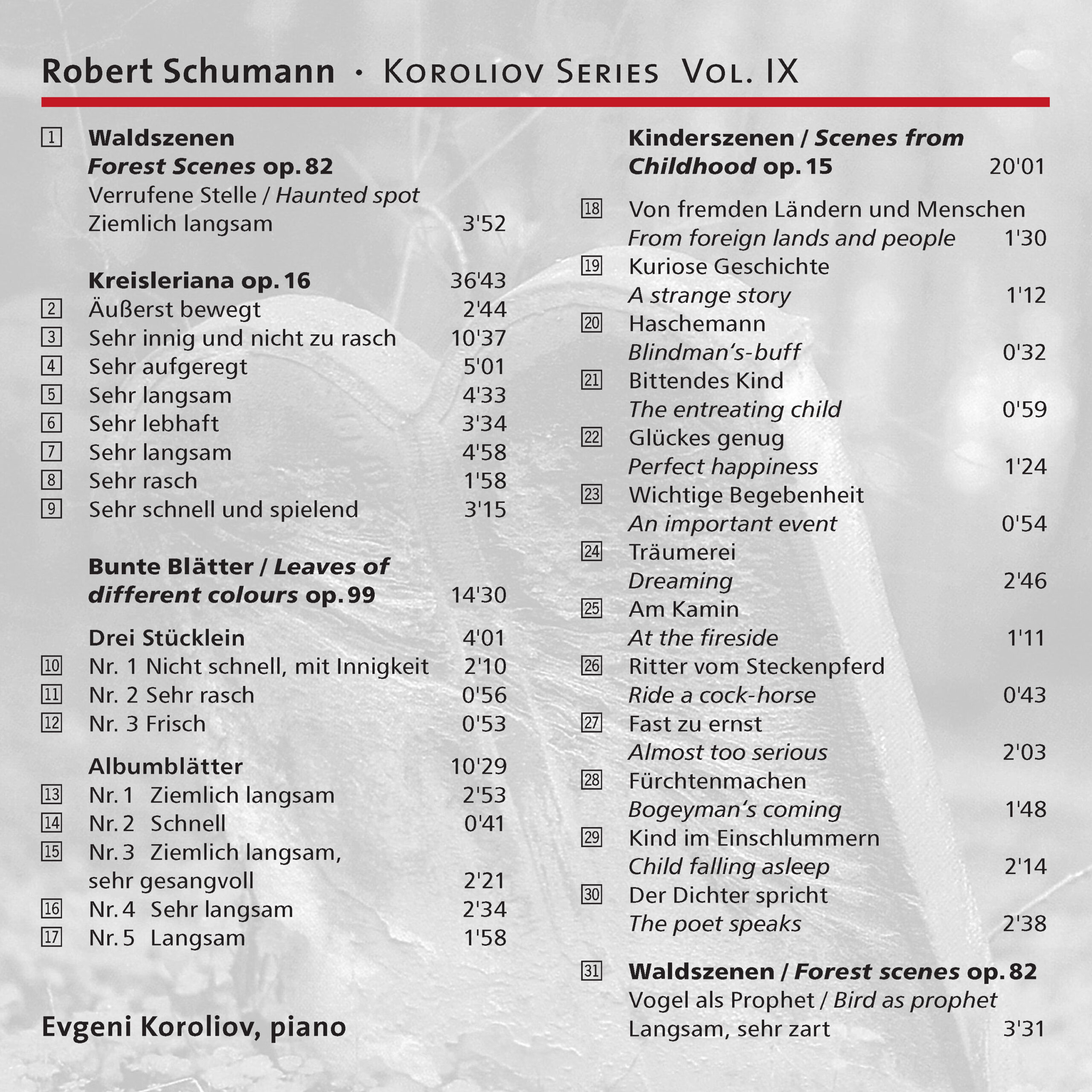


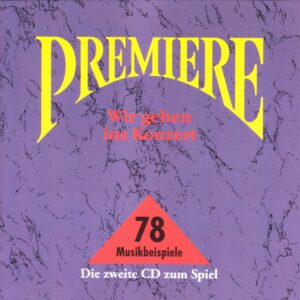
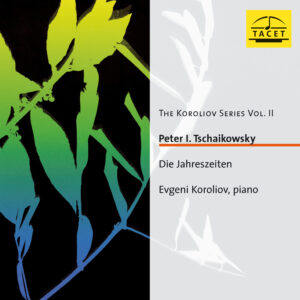
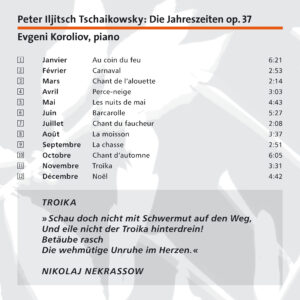
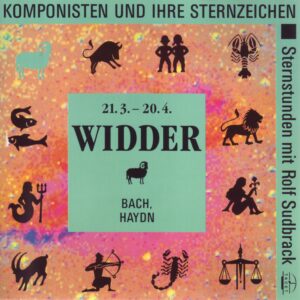
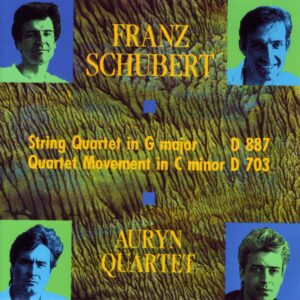
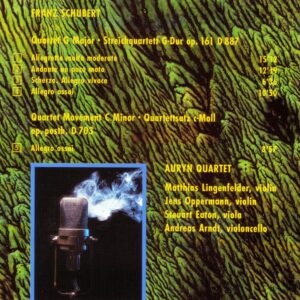
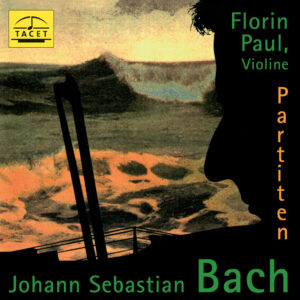

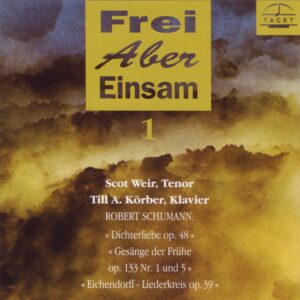
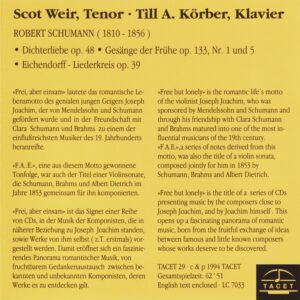
radio K1 –
A moving recording (…): Exceptionally colorful and nuanced in interpretation, technically flawless at the highest level, and with a keen sense for the contradictions in Robert Schumann’s magical world.
Partituren –
"The ‘Haunted Spot’ is one of the most mysterious and worrying pieces of the Forest Scenes op. 82 and seems somewhat unusual as the opening of a Schumann CD. And yet this miniature takes us straight into the middle of Koroliov’s Schumann idea, which radically rejects all facile virtuosity and any superficial flow. Koroliov digs deep into the Kreisleriana and is obsessed with detail in his search for rough patches, resistance and the unexpected. The fact that he never loses sight of the greater picture is one of the secrets of this truly great pianist. The Scenes from Childhood sound wonderfully simple, just like the dreamy recollection of an aging poet. After this CD we would like to go back to Schumannn’s favourite poet Jean Paul." (Partituren)
OB
Classica –
Superb sound, precise, warm, and rich – a remarkable recording
Pianist Evgeni Koroliov is best known for his legendary Bach recordings (on Tacet and Hänssler), one of which was praised by Ligeti as “the” record he would take to a desert island. This Schumann recital proves to be stunning and deeply moving from start to finish. Its generously filled, originally conceived program may seem unusual at first glance, but it reveals itself to be profoundly thoughtful: It opens and closes with two of the darkest and most unsettling pieces from the Forest Scenes (Cursed Place and The Prophetic Bird) and intersperses the Kreisleriana and Scenes from Childhood with the first eight pieces from the rarely heard Bunte Blätter, Op. 99.
It might seem strange to mix acknowledged masterpieces with excerpts from a late collection of modestly titled miniatures (Drei Stücklein, Albumblätter). However, as the liner notes remind us, Schumann selected the thirteen Scenes from Childhood from about thirty pieces written during the same period, some of which were published later, including in Op. 99. Above all, this program—and Koroliov’s inspired interpretation—demonstrates how Schumann’s “small” and “great” works converge in their expressive power.
For a long time, the absolute reference for the Kreisleriana and Scenes from Childhood has been Martha Argerich’s breathtaking recording (DG), closely followed by Katia Skanavi’s (Lyrinx) coupling of the same works and Horowitz’s two versions (Sony and DG) of Op. 16. Compared to these interpreters, who capture Schumann’s madness through their hallucinatory fantasy, Koroliov’s playing seems more restrained, more sober, with (relatively) fewer coloristic experiments and fewer textual liberties. Yet an incredible emotional intensity emerges. His playing sometimes becomes a twilight that reveals every crack in the soul. The Scenes from Childhood are even more introspective than Argerich’s, veiled in tender nostalgia and the melancholy of memory.
In contrast, in the excerpts from the Forest Scenes and Bunte Blätter, we have never heard tempos so meditative, sweetness so infinite, or expressivity so poignant. A magnificent recording!
Philippe van den Bosch
___________________________
Original Review in French language:
Superbe sonorité, précise, chaude et riche Notice
Le pianiste Evgeni Koroliov est surtout connu pour ses fameux enregistrements con sacres à Bach (chez Tacet et Hänssler), l′un d′eux étant vante par Ligeti comme «le» disque qu′il emporterait sur l′île déserte. Ce récital Schumann s’avère aussi stupéfiant et bouleversant de bout en bout. Son copieux programme, compose d′une manière originale, semble bizarre de prime abord, mais se révèle profondément pense il s′ouvre et se ferme sur deux des pages les plus sombres et inquiétantes des Scènes de la forêt, Lieu maudit et L′Oiseau prophète, et glisse entre les Kreisleriana et les Scènes d′enfant les huit premières pièces des rares «Feuillets bigarrés» op 99. Il peut sembler étrange de mélanger chefs-d′œuvre consacres et extraits d′un recueil tardif de petites pages aux appellations modestes (Drei Stücklein et Albumblätter). Mais comme le rappelle la notice. Schumann a sélectionne les treize pièces des Scènes d′enfant parmi une trentaine écrites a la même période, certaines éditées plus tard, notamment dans l′Opus 99. Et surtout, ce programme, ainsi que l′interprétation inspirée de Koroliov, montre à quel point «petites» et «grandes» œuvres se rejoignent dans la même puissance expressive chez Schumann. Depuis longtemps, la référence absolue des Kreisleriana et des Scènes d′enfant est constituée par un disque fabuleux de Martha Argerich (DG), juste devant le même couplage par Katia Skanavi (Lyrinx), et les deux versions (Sony puis DG) de l′Opus 16 par Horowitz. Face à ces interprètes restituant la folie schumannienne par leur fantaisie hallucinée, Koroliov semble adopter un jeu plus sage, plus sobre, usant (relativement) de moins de recherches de couleurs et se permettant moins de libertés avec le texte. Pourtant une incroyable émotion s′en dégage. Son chant se fait parfois pénombre, pour manifester toutes les failles de l′âme. Les Kinderszenen se tiennent dans un registre encore plus intériorise que celui d′Argerich, nimbées d′attendrissement et de mélancolie du souvenir. En revanche, dans les extraits des Waldszenen et des Bunte Blätter, nous n′avions jamais entendu tempos aussi méditatifs, douceur aussi infinie et expressivité aussi poignante. Un grand disque
Philippe van den Bosch
Le monde de la musique –
„Choc du Monde de la Musique“
In Kreisleriana, Op. 16 (1838), Schumann achieves one of his most deeply subjective masterpieces. Despite their dark character, moments of brightness are not absent, and Schumann rarely juxtaposed such contradictory moods elsewhere. Yet the psychological unity remains intact, whether through the minor key or the near-constant tonal center around B-flat major. While the collection Bunte Blätter, Op. 99 (1837–1849) does not form a unified cycle, it contains many hidden gems. The mysterious Forest Scenes (1849) are the only late piano cycle by Schumann that recaptures the lyricism of his early works. In the deceptively simple Scenes from Childhood (1838), Schumann becomes the first composer to fully realize the miniature genre previously explored by Beethoven and Schubert.
A rigorous architect who is never decorative or superficial, Evgeni Koroliov reveals infallible intelligence, an extraordinary fidelity to the text, and a thought process of absolute coherence. He advocates a deeply introspective interpretation reminiscent of Sviatoslav Richter. In the Scenes from Childhood or Bunte Blätter, such introspection might initially unsettle, but this dynamic, bold style does not preclude a rich variety of colors. Koroliov captures the nocturnal essence of these deceptively childlike pieces in the Scenes from Childhood, finding the perfect light for each one. Even if one might prefer more fluid, romantic, or brilliant interpretations, his restrained playing preserves the continuity and logic of the Kreisleriana while emphasizing the ascending intensity of the tempos.
Patrick Szersnovicz
____________________________________
Original Review in French language:
„Choc du Monde de la Musique“
Schumann réalise dans les Kreisleriana op. 16 (1838) le plus subjectif de ses chefs-d′œuvre. Malgré leur caractère sombre, les éclaircies n′y sont pas absentes, et Schumann luimême n′a que rarement fait coexister des humeurs aussi contradictoires. L′unité psychologique en est pourtant soutenue, soit à travers le mode mineur, soit à travers une quasí-permanence tonale autour de si bémol. Si le recueil des Bunte Blätter op. 99 (1837-1849) ne constitue pas un cycle unifié, il contient maints joyaux méconnus. Les mystérieuses Scènes de la forêt (1849) sont le seul cycle pour piano de la fin de la vie du compositeur qui retrouve le lyrisme de ses pages de jeunesse. Dans les Scènes d′enfants (1838), simples d′apparence, Schumann est le premier compositeur qui ait mené à son accomplissement le genre de la miniature tenté auparavant par Beethoven et Schubert. Architecte rigoureux, jamais décoratif ni extérieur, Evgeni Koroliov révèle une intelllgence infaillible, un respect du texte peu ordinaire, une pensée d′une totale homogénéité. Il défend une conmption très intériorisée, qui n′est pas sans rappeler celle de Sviatoslav Richter. Dans les Scènes d′enfants ou les BunteBlätter, une telle introspection peut effrayer, mais ce style dynamique et audacieux n′interdit pas la variété des couleurs. Saisissant dans les Scènes d′enfants l′aspect nocturne de ces pages faussement enfantines, le pianiste trouve la lumière idéale à chaque pièce. Même si l′on peut préférer des versions plus fluides, romantiques ou brillantes, ce jeu sobre préserve la continuité, la logique des Kreisleriana tout en privilégiant l′intensification ascendante des tempos. “
Patrick Szersnovicz
Pizzicato –
Intimate Schumann
Supersonic
With this release, Evgeni Koroliov presents the ninth volume in his recording series—a lavish bouquet of Schumann’s poetic works that will delight even the most discerning music lovers. The Russian pianist’s simple yet expressive approach demonstrates a meticulous attention to detail that seamlessly integrates into the structure of each piece. A rich palette of nuances and timbres, paired with an unshakable sense of rhythm when needed, allows Koroliov to deliver a masterful interpretation in the realm of musical imagination.
itb
_____________________________________
Original Review in French language:
Schumann intime
Supersonic
Koroliov signe ici le neuvième volume de sa série d′enregistrements. Un généreux bouquet de pages poétiques de Schumann qui ravira les mélomanes les plus exigeants. L′approche simple mais expressive du pianiste russe démonstre un souci du détail qui s′intègre avec bonheur dans la structure de chaque pièce. Une riche palette de nuances et de timbres, doublée d′un sens rythmique inébranlable lorsqu′il le juge nécessaire, permet à Koroliov une interprétation magistrale dans ce monde de l′imaginaire musical.
itb
Klassik heute –
At last, a Schumann CD program that is truly "composed" in the sense of a recital! Evgeni Koroliov frames the major works—Op. 16, Op. 99, and Op. 15—with two pieces from the Forest Scenes, Op. 82, which abound in indirect illuminations, contemplation, vivid imagery, and even layers of religiosity. In the opening Verrufene Stelle (Cursed Place), there is a sense of threatened, quietly eerie faith, while in the central Vogel als Prophet (Bird as Prophet), we encounter a chorale-like quality—almost a miniature counterpart to Franz Liszt’s first Legend in homage to St. Francis of Assisi. Koroliov is not the kind of pianist who, at the beginning of the Kreisleriana—unlike, say, Viktoria Postnikova many years ago—sweeps boldly across the keyboard. For him, "Äußerst bewegt" (Extremely agitated) is a matter of deliberate diction, a momentary, controlled intensity that anticipates what is to come. Even in the expansive second fantasy ("Sehr innig und nicht zu rasch"—Very intimately and not too fast), he does not push the boundaries of sonic or declamatory refinement. Instead, he guides the listener with the care of a piano sociologist through the softer and more assertive passages of this peculiar musical world. With Koroliov—and this applies, in my view, to all the pieces on this recording—it is not about isolated wonders of primary, secondary, or incidental characterization. Rather, it is about the clear visibility of details that naturally coalesce into a whole. He and his listeners do not lose themselves in charming details, but they are left with a resonant aftereffect—the echo of an interpretive language that, beyond syllables and words, brings the meaning of coherent sentences into consciousness.
Peter Cossé
Audiophile Audition –
This is the ninth volume of Tacet′s series devoted to Russian pianist Evgeni Koroliov. The pianist, a Muscovite born in 1949, has become a bit of a connoisseur′s confection since the first release of his works on this label in 1990-Bach′s Art of Fugue, no less. Koroliov possesses a firm and unyielding technique, a stormy temperament, and a rare clarity of line and shapeliness of phrase that are all too often overlooked among many of today′s younger lions and lionesses. He is not afraid to let Schumann be Schumann, with all of the tempestuousness that the name implies; yet he also avoids any spilled-over histrionics that so often mar the unique and unequivocal sense of form and style that Schumann worked so hard to put into his music. His Romantic outpouring may have indeed been infused with sweat and feverish inspiration, but we also know that he was hypersensitive to the construction and formal workings of his often informal-sounding fantasies.
Here we are offered three of his most astounding pieces, and shamefully only two movements of a fourth. Indeed, as the Forest Scenes are among my favorite pieces, I approached this disc with not a little anger when I saw how it was organized, with the two Waldszenen book-ending the entire program. But my anger was quickly diffused as I leaned into the stormy opening of the Kreisleriana, and the rest of the album proved just as rewarding. Indeed, this is one of the best Schumann albums now available, and it competes readily with some of the many greats of the past.
Just for comparison, I played Radu Lupu′s translucent account of the Kreisleriana, a splendid reading of vast openness and thoughtfulness. To my mind, Koroliov is closest to his approach, so if you know that Decca recording you will have an idea of what to expect. Argerich, ever the poet, alternates between extremes almost every moment. Hers is the spectacular reading, one that would put Schumann on the map if ever he needed such a thing, and the DGG recording sounds great. And even the extraordinary Horowitz, on his CBS recording from the late sixties, still has wonderful sound, and the amazing ability to clarify Schumann′s lines using half the pedal that virtually everyone else uses. For beauty of tone and a lofty angularity that puts the others in the dust, he is your man.
But Koroliov definitely knows the composer well, and I don′t think that even the virtues of these other players, great as they are, negate the many varied and truthful things he has to say to us about music that has been as twisted and pulled apart as any of the Romantics. His is the voice of the close acquaintance, the inner circle, and the trusted friend. The fact that he is speaking in such outstanding sonics only adds to the desirability of this must-have release.
Steven Ritter